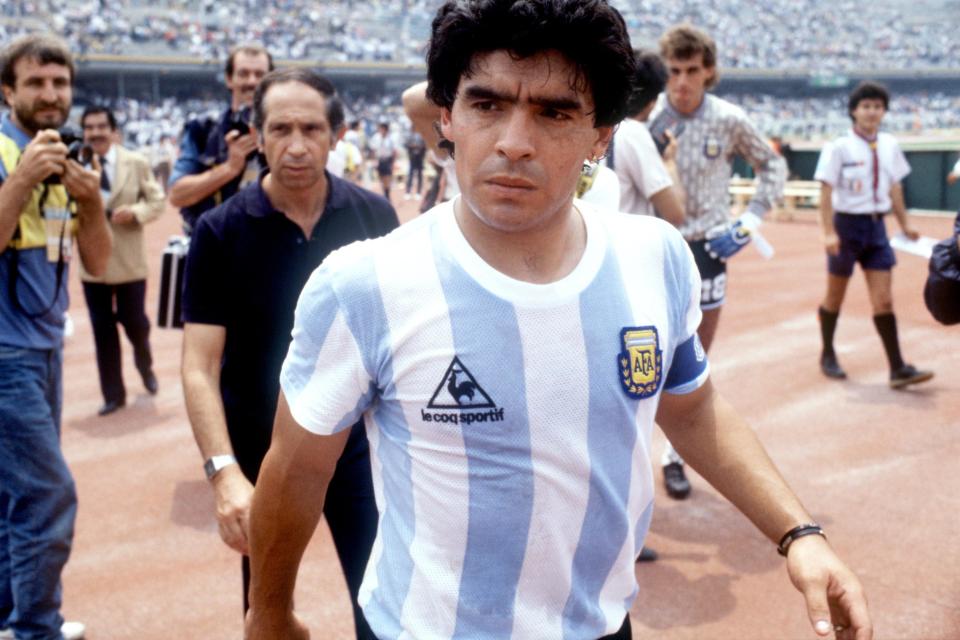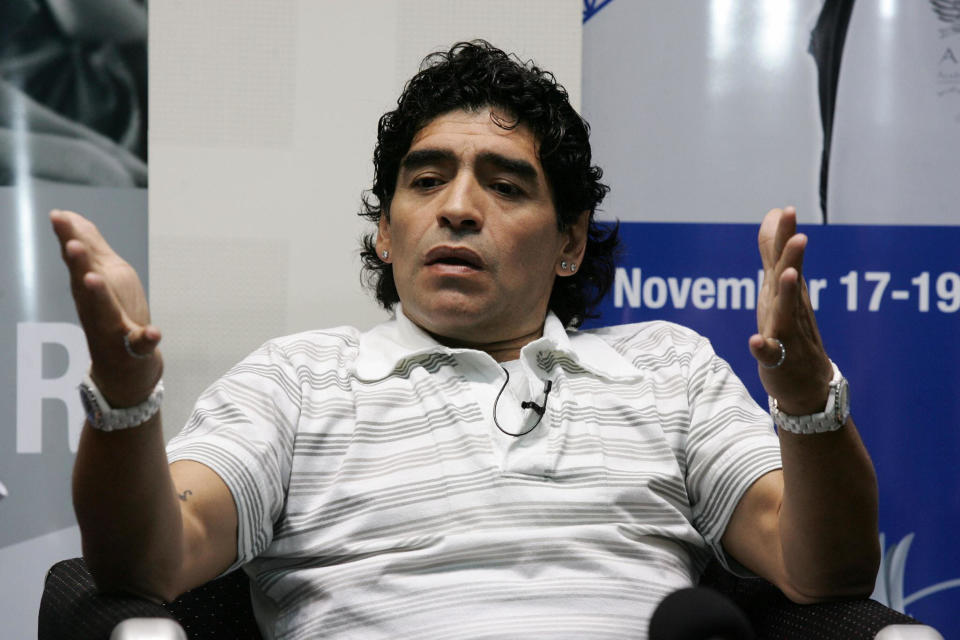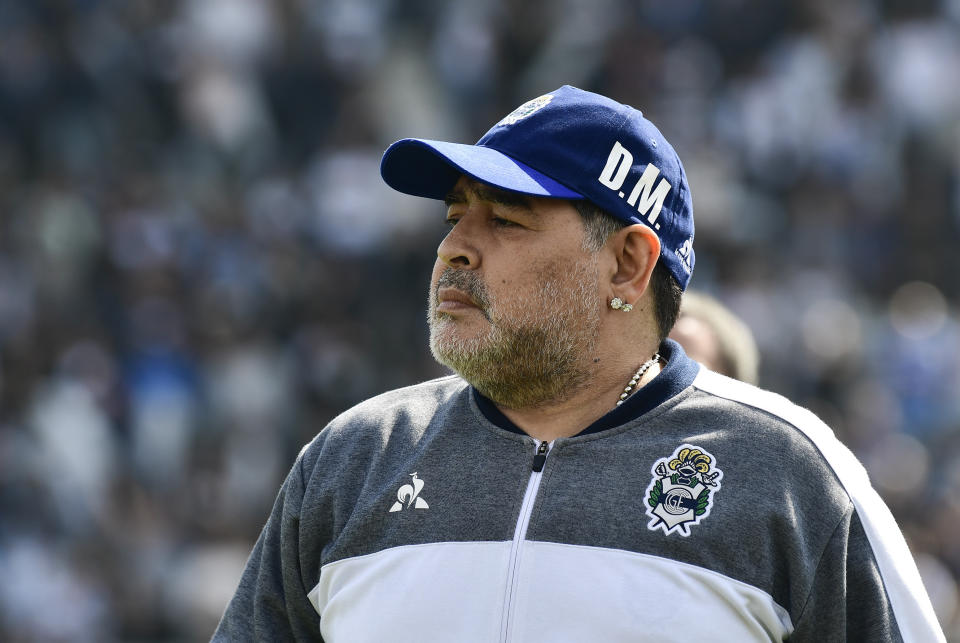'Diego Maradona' deconstructs soccer's permissiveness through the lens of the Argentina icon

There’s a belief, widely accepted, that there are only seven types of story – seven plots, to which all tales conform in one way or another.
Overcoming the monster. Rags to riches. The quest. Voyage and return. Comedy. Tragedy. Rebirth.
The extraordinary thing about Diego Maradona – teenaged Argentine soccer prodigy risen from desperate poverty; superstar; serial philanderer; father of at least eight children; genius; tax cheat; perpetrator of legendary debauchery; drug abuser; racist; friend of the mob; performance-enhancing drug cheat; deity; conflict magnet; trophy-less, journeyman manager; medical wonder; domestic abuser; Communist sympathizer – is that his life has somehow rolled all of those narratives into one.
Like any good documentary about an outsized figure, director Asif Kapadia’s Diego Maradona, which finally made its North American premiere on HBO Tuesday night, wisely chose to limit the scope to Maradona’s time at Napoli, the apex of his career and of his public life. Because it was also, no doubt, the most compelling period for all of its complications and contradictions. This remarkable film was made from hundreds of hours of previously unseen footage sourced from several different inexplicably untapped caches and, most powerfully, narrated by Maradona himself.
Diego Maradona fast-forwards through its namesake protagonist’s meteoric rise from Argentinos Juniors to Boca Juniors to his two tumultuous and unhappy seasons with FC Barcelona to his arrival at Napoli in 1984 as a 23-year-old. The unfashionable Italian outfit was the only team willing to pay Barca its asking price, taking a chance on an erratic but towering talent.
Upon his move to Southern Italy, Maradona was broke, somehow. He didn’t know anything about Napoli or Naples, or its permanent status as Italy’s endlessly derided underdog city, with the underdog team. But it turned out they were well-matched. Maradona was an underdog, coming from a large family crammed into a tiny shack. He had supported his parents and siblings financially since he was 15, pulling them out of poverty with his feet. At first, he’d not wanted much more than to escape the shantytown and buy his parents a house, and would do anything to get there. There was a noble side to him. A sweet and humble side. To family and friends he was just Diego. But then there was also the larger-than-life persona he so easily assumed: Maradona. Tiny yet sturdy. Overmatched physically, yet immutable. Unquenchable.

This Maradona spoke of himself in the third person and played with a thick, gold necklace on. He turned Napoli from a mediocre team into a powerhouse, lifting the city looked down upon by the entire nation. He became the toast of the town. A town run by the mafia, mind you. He ran in their circles. They became friends, offering protection. Winning the 1986 World Cup cemented his superstardom. He felt like a man of the people, yet he was increasingly inaccessible to them. Unless they wanted to party. He was always ready to party.
He led Napoli to the Italian championship the next year, sending the city into a frenzied meltdown that lasted most of the summer. But during that season, he’d sired his first baby out of wedlock, while married to his childhood sweetheart. The mother named it Diego Armando Junior and the tabloids ate it up. You could already sense that his life was getting too big for him to handle.
But Maradona became a de facto patron saint of the city. The film shows people saying things like “If you speak badly of Maradona, you are criticizing God” and “We Neapolitans have inside us more than God perhaps, Maradona.”
And so began the enabling. Maradona couldn’t leave his house anymore. The city closed in on him. So, isolated, he partied in more private settings. He got ever deeper into cocaine. The Camorra was his hookup. And then it owned him.
Perhaps sensing he was spiraling, Maradona wanted out of Naples by 1989, to play somewhere calmer. But the club president forced him to stay two more seasons. It wasn’t good for him. More partying. More coke. After the games on Sundays, he’d party straight through to Wednesday, on cocaine benders, then he’d clean up and dry out and lead Napoli to a second title on Sundays. There was no real practice for Maradona. Cocaine owned him. And the mob owned his cocaine supply. He was a prisoner of an addiction, a club that wouldn’t let him go, and of the Camorra, which had even less interest of relinquishing its grip on him.
All at once, his worst instincts were liberated as he was being suffocated.

Then at the 1990 World Cup, Maradona led Argentina past Italy in the semifinal. In Italy. In Naples, where loyalties split between their nation and their hero. That’s when a demigod became “the devil” as one paper dubbed him. He was the most hated man in Italy.
Suddenly, Maradona and his addiction weren’t protected and sheltered anymore. Within short order, he failed a drug test. He’d already been investigated for buying drugs and offering it to the prostitutes he knew so well. Now he was a drug dealer. He took a plea bargain and a suspended sentence.
But he was suspended from soccer for an unprecedented 15-month ban. He went home to Buenos Aires and was arrested for drug possession there too. He had just turned 30. He was plainly overweight. And he’d frittered his career away. Everybody knew it.
Diego Maradona paints a picture of the sport’s incorrigible permissiveness. In the name of winning, all is fair game, turning an overwhelmed boy from the slum and turning him into a caricature. Nobody had any issues with Maradona’s cheating, his addiction, his womanizing, his partying. They were winning. Making money. It was all fine. Until he knocked the country that indulged him out of the World Cup. That’s when it all came crumbling. That’s when the mutually beneficial arrangement was canceled without notice. Morality is a rare thing in soccer. Then and now.
The film starts and ends with a quote. “When you’re on the field, life goes away,” Maradona says in his soft, raspy voice. “Problems go away. Everything goes away.”
The trouble was, his insatiable appetites off the field made it harder and harder to get back onto it. And then he ran out of fields to escape to.
Leander Schaerlaeckens is a Yahoo Sports soccer columnist and a sports communication lecturer at Marist College. Follow him on Twitter @LeanderAlphabet.
More from Yahoo Sports:

 Yahoo Sport
Yahoo Sport 






































